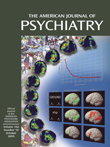This book is another in American Psychiatric Publishing’s Core Competencies in Psychotherapy series on the five forms of psychotherapy now mandated as necessary for trainees in psychiatry in the United States. The series editor, Glen O. Gabbard, M.D., writes in the introduction to the series that these texts are envisioned for use in training programs as “valuable adjuncts for the traditional methods of psychotherapy education: supervision, classroom teaching, and clinical experience with a variety of patients” (p. xv).
The editors of this volume are experienced teachers of brief psychotherapies in psychiatry and psychology programs who, in this book, concentrate on six models of brief psychotherapy and include a valuable final section on evaluating student progress. They aimed to produce a practical guide for students, teachers, and clinicians to brief psychotherapies and specifically to cognitive, behavior, solution-focused, interpersonal, time-limited dynamic, and couple therapies. They note that “more than three-quarters of all therapists are conducting planned brief therapy and that such short-term work accounts for 40% of their clinical hours” (p. 2). They proceed with a very useful discussion outlining when brief therapy is appropriate according to six criteria as a “useful heuristic for trainees” (p. 6). This introduction is succinct and clearly written.
Six chapters follow, each written by authors who are expert in practicing and teaching a brief psychotherapy modality. The first, “Cognitive Therapy,” by J.S. Beck and P.J. Bieling, is a good overview of the topic that will be appreciated as an introduction to the therapy. “Brief Behavior Therapy,” written by E.A. Hembree, D. Roth, D.A. Bux, Jr., and E.B. Foa, is limited to stress inoculation training and exposure therapy for patients with obsessive-compulsive disorder and posttraumatic stress disorder. Reflecting the authors’ expertise, the necessarily brief summary focuses on these anxiety disorders.
The third, “Solution-Focused Brief Psychotherapy,” by B.N. Steenbarger, is written very differently from the other chapters and is an example of the application of this model of psychotherapy. Next, S. Stuart describes “Brief Interpersonal Psychotherapy.” He notes that
transference is an important part of IPT [interpersonal psychotherapy] but is not addressed directly in therapy. To do so detracts from the focus on symptom reduction and rapid improvement in interpersonal functioning, the basis of IPT. (p. 125).
A description of maintenance treatment is a valuable aspect of this chapter, as is the discussion of concurrent use of medication. The fourth chapter, “Time-Limited Dynamic Psychotherapy,” is presented by H. Levenson, whose attempt to summarize and distill this particular psychotherapy leaves the reader more concerned about the complexities of the treatment than do the other chapters. As a result, some may be discouraged, but others might be stimulated to use the reference list and learn more. In “Brief Couple Therapy,” D.H. Baucom, N.B. Epstein, and L.J. Sullivan focus only on cognitive behavior couple therapy, using the same format as other chapters.
All of the chapter authors explain the theoretical framework of the respective psychotherapy, outline relevant research data, explain assessment and suitability criteria, and summarize treatment procedures. Each is written in a distinctive style, normally a distraction in a multiauthored book. Here, however, these presentations serve positively to illustrate and emphasize the different psychotherapies. The chapters are designed to stimulate interest in brief psychotherapies, and all must be used as part of an educational program as brief guides to each of the methods outlined. The case examples are particularly helpful.
The Special Topics section is also very useful for the student. Forming the second part of the text, this includes chapters on essential common factors in all—multicultural aspects, combining psychopharmacology and brief psychotherapies, and evaluating competency. The chapter by Greenberg, “Essential Ingredients for Successful Psychotherapy: Effect of Common Factors,” is especially good and, in my opinion, would have been better placed at the beginning of the book, but this is a minor criticism. The concluding overview and synthesis by the editors is just that, and well worth reading.
Overall, this book fulfills its goal. It should be required for all psychiatry and other mental health profession trainees. Practitioners who wish to learn more about a particular brief psychotherapy will also find it of value. I recommend it to all.

